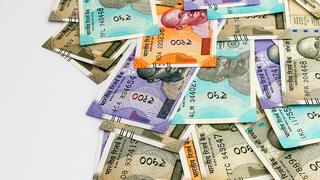Your credit score can make or break your application for a loan or credit card. Here are a few factors that can impact your credit score.
Why it mattersA credit score is one of the important factors that banks take into account while accepting or rejecting your application. The higher the score, the better it is. “While each bank has its own credit scoring cut-off, it has been observed that most banks lend to consumers with a CIBIL TransUnion Score of 750 and above,” says Harshala Chandorkar, COO, CIBIL, the country’s first credit information company.
The highest credit score that can be assigned by CIBIL is 900. But, unlike in many other countries, in India, credit scores do not impact banks’ loan pricing decisions. So, don’t expect a lower rate of interest on your loan simply because you have a good credit score. But, given that a poor score can prevent you from getting a loan or a credit card, having a good score is critical.
What counts the mostA number of factors go into credit score calculations. These include your past payment record on loans and credit cards, the extent and type of credit exposure, credit history and credit enquiries. While the weights assigned to each of these factors vary across credit information companies, in general, some of these factors impact your credit score more than the others.
Your past performance — on servicing loans and making credit card payments on time — is considered the most important factor. For instance, CIBIL assigns it the highest weight of 30 per cent. Delays in paying your loan EMIs and, worse, defaults, can dent your credit score. Similarly, missing payment deadlines or defaulting on your card payments too can hurt your score.
Credit exposure, the extent of which is determined by the quantum of your borrowings (loans) and your credit card utilisation ratio (aggregate outstanding balance on all cards as a percentage of the aggregate of all card limits), is another critical factor. CIBIL assigns credit exposure 25 per cent weight in its calculations.
“High credit utilisation increases your credit exposure. This impacts your income-to-debt ratio, one of the important criterion for assessing loan applications,” says Chandorkar. Another 25 per cent weight is assigned to the type of loans taken and the duration of credit history. The higher the proportion of unsecured loans (such as personal loans) in your portfolio and shorter the length of your credit history (the time since you have taken a loan or a credit card), the worse it is for your score.
A longer credit history allows a more detailed understanding of your payment behaviour. It goes without saying that the historical record must also be good.
Equifax India, another credit information company, too, assigns the highest weight to an individual’s past payment record; credit exposure is a close second.
Other factorsThe length of the credit history, credit mix and the number of credit enquiries are the other factors considered by Equifax. According to Manu Sehgal, Business Development Leader, Emerging Markets, Equifax, while a less diversified borrowing portfolio (for instance, having a credit card but no loan) may not affect your credit score, having a more diversified and well-managed borrowing portfolio comprising credit cards and loans (secured and unsecured loans with more of the former), can have a positive impact on a person’s credit score. But too many credit enquiries can dampen your credit score.
History is importantYour credit score is calculated based on your credit behaviour in very recent years. So, does that mean you can present yourself as a worthy borrower to a potential lender despite having slipped on debt repayments a long time ago? Not really. Chandorkar provides an explanation.
While the CIBIL TransUnion Score is based on 24 months of credit history, the CIBIL Credit Information Report shows the status of all the loan and credit card accounts taken by an individual in the past.
If the CIBIL Report shows a ‘settled’ or ‘written off’ status, then it may get difficult for the individual to get a loan. So, though there will be no impact of this on the credit score, it will be reflected in the person’s credit history in the CIBIL Report.








Comments
Comments have to be in English, and in full sentences. They cannot be abusive or personal. Please abide by our community guidelines for posting your comments.
We have migrated to a new commenting platform. If you are already a registered user of TheHindu Businessline and logged in, you may continue to engage with our articles. If you do not have an account please register and login to post comments. Users can access their older comments by logging into their accounts on Vuukle.